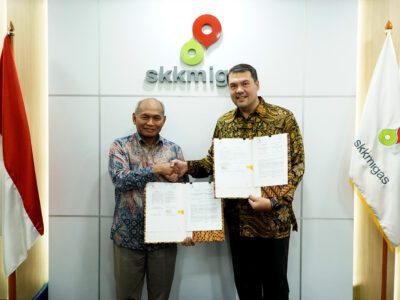Nayla Khawam, recently appointed CEO of Orange Jordan, tells CommsMEA about her first six months in charge of the incumbent operator and what she has planned for 2010.
According to Jordan’s telecom regulator, the country’s mobile penetration rate breached the 100% mark at the end of September, thanks to what Dr Ahmad Hiyasat, executive chairman of the Telecommunication Regulatory Commission (TRC) described as “competition and competitive prices”.
There is some debate about the apparent growth, which was 5% higher than the TRC expected, with analysts at BMI suggesting that “a growth rate of over 10% quarter-on-quarter in the middle of a recession, even with aggressive price promotions, does not seem very likely”.
Although there may be speculation about the exact number of people in Jordan using a mobile phone, Orange Jordan’s recently installed CEO, Nayla Khawam, would agree with the reasons given by the TRC for the apparent growth.
For Khawam, one of the most striking things about the mobile sector in Jordan was the focus on price. “I found that the market was really very tough. Perhaps tough is not the right word,” she says, choosing instead to describe it as “completely crazy”.
“The mobile market in Jordan is completely and exclusively price driven,” she explains. “The main usage of mobile is voice and SMS and there is no diversification; the revenue from data and content is so, so little, that it becomes very difficult to innovate and create and introduce new services because you can’t really take a risk because you have such a limited margin.”
Khawam says that the 3G licence that Orange Jordan was exclusively awarded in August will provide Orange Jordan with an opportunity to expand the range of services offered and to increase the value of the market.
Lebanese-born Khawam who took on the role of Orange Jordan CEO in July, replacing Mickael Ghossein, is the former area director for the Paris Region of Orange Jordan’s parent company France Telecom, where she looked after commercial and technical departments for mass market and business clients.
Khawam says that she considers Orange Jordan’s main role to be to bring value added services to the country, and to do so she says that she would like to see the telco become “much more innovative”. As well as being a technology leader, she says the role of the telco is to educate people.
She says that Orange Jordan has many projects to explain to customers how they will be able to use the new services that will be launched on the back of 3G. And if King Abdullah’s ambitious target of 50% internet penetration in the next two years (it currently sits at 28%, according to the TRC) is to be reached, more education by Orange Jordan is required, Khawam says.
Waiting game
The rollout of Orange Jordan’s 3G network is well under way, with the initial launch expected to take place “at the beginning of next year”. Khawam says that the launch will be phased, with the initial focus on Jordan’s larger cities.
The road to 3G in Jordan has been a long one. Orange Jordan eventually fought off competition from Zain Jordan, the only other operator to bid for the licence, when it was awarded the licence in August having agreed to pay JD50 million (US$70 million). The award of the licence ended a drawn out affair, when a previous attempt to award the licence three months earlier failed after the TRC turned down the only bid, from Orange Jordan, on the grounds that it did not meet the conditions laid out in the tender document.
The second time around Orange Jordan got its own way, with some of the concessions originally ruled out by the TRA included in the award, such as an extension to the exclusivity period and a reduction in the amount of customs duties paid on the equipment needed to roll out the network.
“3G will cost us around JD100 million ($140 million); JD50 million for the licence and JD50 million for the capex for the systems and marketing. It’s not easy to know what is exclusively for 3G but it will probably be something around this,” Khawam says. She estimates that not having to pay customs charges on the 3G equipment and a reduction on the frequency fees will save Orange Jordan “around JD10m”.
The telco has a six month period in which to build the network, after which a one year exclusivity period will begin. Khawam says that the TRC is not able to impose any sanctions on Orange Jordan if it overshoots the six month timeframe. She says that if it is delayed it will erode the exclusivity period, which in itself would be a penalty for the operator.
Jordan was the first country in the Middle East to issue mobile virtual network operator (MVNO) licences, but without any wholesale deals struck with the country’s operators, Oman has since emerged as the MVNO capital of the region. Now that the likes of MVNOs Friendi and Renna have well-established operations in Oman, attention has turned to Jordan, where Friendi already has a licence to start operations. All it needs now, is a deal with an operator.
Nayla Khawam says that talks with “a number” of virtual operators are ongoing. “We are having conversations with MVNOs. We didn’t finalise anything, but I am not against it and I am not for it. It depends on the business we can do together,” she says.
Khawam says that working with an MVNO could help Orange Jordan “go to a market we are not able to serve very efficiently. We are a big company and we serve all segments, we are trying more and more to design our offers answering to the different segments of the markets.”
“In our last survey customers in Jordan recognised in Orange the capacity to address their needs more than anyone else. We have the best offers for this, which means that our marketing policy is the right one, and an MVNO is one of the possibilities to do that, and have some niche in the market.”
Handset base
Despite the absence of a 3G network, Khawam estimates that 20% of Orange Jordan’s customers’ handsets are 3G enabled. She remarks light heartedly that it will only be enough when 100% of subscribers have a 3G handset, but it is a steady base from which to launch. However, these customers will need to replace their Sim cards, and this, Khawam says, is part of the education process that Orange Jordan will have to lead.
“We will offer video over mobile, which is easier to explain, and many content services. So we have to explain all this,” Khawam says. “And even to explain to people that they can access YouTube or Facebook through mobile and it becomes very easy, because 3G is for 2G what ADSL is for dial up. So it’s not the same customer experience to get TV or YouTube or anything through 3G, it is a completely different experience.”
Data provider
A faster mobile network also opens up the possibility of selling mobile broadband to customers. USB plug in devices, or dongles, will be part of Orange Jordan’s 3G-related product offering. The relatively low penetration of PCs and laptops in Jordan means that Orange does not have the concerns of many operators that a minority of mobile broadband users will use the majority of capacity.
“In the country we have around 1 million computers and much less laptops and we have 5.5 million handsets,” Khawam explains. “One laptop can use much more capacity than a handset, but at the moment I don’t think it is really an issue because we are able to offer a capacity of traffic that is so huge relative to what people could use at the first step. We are doing forecasts… and I think that after one year we will see what the pattern is.”
In an effort to boost PC penetration and internet usage the government has launched an initiative for one laptop per student with options for them to pay for the devices during the course of their studies. To support the initiative, Orange Jordan is giving each student with a laptop “significantly lower prices” for accessing the internet. To further drive penetration, Orange has also launched dedicated offers for the north and south of the country.
“We started in the south in June,” Khawam says. “We launched a similar offer dedicated for the north with the needs of the north and it’s also a success, and we hope for the students it will be a success.” According to the Orange Jordan CEO, as a result of the promotion, gross sales of internet connections increased by 40% in the south, with many customers opting to increase the speed of their connections.
The issue of the speed of Orange Jordan’s internet connections was raised by a vociferous group of bloggers, who said that the speeds they paid for differed markedly from the actual speed of their connections. With most operators choosing to market their services by advertising the maximum possible speed it is something of a common complaint, and Khawam says that is by no means unique to Jordan.
“I think it is more of a global issue,” she says. “When you say you are providing 1Mb, it doesn’t mean from the morning to the evening you will get 1Mb, everywhere you are. When people go and check at 10 o’clock in the evening when everyone is connected and they are a little bit far from the access point, they will not get 1Mb.
This is not just Orange Jordan, this is an international standard. So we have to educate people about what it means. We have to do it, there is no other solution. It is not a technical issue; it’s more a marketing issue,” she says.
Orange Jordan’s fixed line subscriber base declined from 529,000 last year to 506,000 during the second half of this year. Khawam says the drop has been “stabilised” and will be less severe than last year.
“I think [fixed lines] have another function for families and can be the main point of the contact. Also, for a customer to have ADSL they also need the fixed line, so this is also one of the reasons the drop decreased.
“We are trying to offer some advantages now on fixed lines and i think this is not a dead market, but it’s not the future either.”








